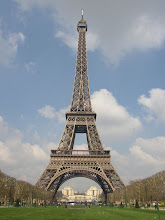and suspended the constitution yesterday to make it easier to enact reform legislation -- as speculation grew about where the banished leader will live in exile.
The ruling council -- the government caretaking body in control since Mubarak stepped down Friday -- said it will run the country for six months, or until presidential and parliamentary elections can be held.
Anti-government demonstrators, who brought down the regime with 18 days of protests, had been pressing for the moves as well as several others, including freeing political prisoners.
AP
DE-FACED! Officials remove a Hosni Mubarak portrait at the Cabinet building in Cairo yesterday, as demonstrators call for new freedoms.
The world continued to monitor developments in the Arab nation, even as democracy movements picked up steam across the region.
"This could be a good thing for the region or it could all fall apart," Sen. Lindsey Graham (R-SC) said on CNN's "State of the Union."
"My advice would be to go slow, form political parties, take that energy that brought the regime down and chart a brighter future. You get one chance to get this right."
As protests turned to celebrations, attention shifted to Mubarak's forwarding address.
The former president is riding out his resignation in his seaside retreat at Sharm el-Sheik at the southern tip of the Sinai Peninsula, but it is unlikely Egyptians will allow him to stay there for long.
Among the likely exile spots is Saudi Arabia, which last month opened its doors to deposed Tunisian leader Zine El Abidine Ben Ali. Other possible locations include the United Arab Emirates, Libya and Germany, where Mubarak has sought medical treatment in the past.
Attention is also focusing on the Mubarak family riches, which, by some estimates, are as much as $70 billion.
US officials say their figures put the family's wealth at closer to $2 billion or $3 billion.
Within hours of Mubarak's resignation on Friday, Swiss officials ordered all banks in the country to search for -- and freeze -- any assets tied to the former president, his family or close associates.
Meanwhile, members of Egypt's controversial police force -- hated for their brutality and corruption under decades-old emergency laws -- marched to demand better pay and conditions and to absolve themselves of responsibility for a failed crackdown at the start of the protests.
"All these orders were coming from senior leaders," said one officer. "This is not our fault."
Elsewhere, Libyan leader Moammar Khadafy said Palestinian refugees should capitalize on the wave of popular revolts in the Middle East by massing peacefully on the borders of Israel until it gives in to their demands.




0 comments:
Post a Comment